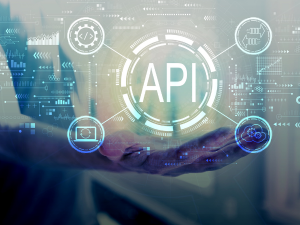APIs
Course Overview
APIs, short for Application Programming Interfaces, are like bridges that allow different software programs to communicate and work together smoothly. They define rules for how different parts of software can interact, making it easier for developers to create new programs and connect existing ones. APIs are crucial in today’s digital world, used in everything from mobile apps to cloud services. Understanding APIs is essential for anyone involved in software development or technology, as they enable innovation and collaboration across various platforms. Enrolling in our API training course offers professionals a comprehensive understanding of APIs, empowering them to streamline development processes, enhance their skill sets, and unlock new opportunities in the ever-evolving tech landscape.
Goal of Course:
This training course enables delegates to achieve a high level of literacy in AI technologies and their dynamics, learning how AI can be utilized to solve problems. Our API training course offers numerous benefits for professionals. By mastering APIs, participants can streamline their development processes, enhance their skills, and uncover new opportunities in the tech industry.
The API course provides hands-on experience and a deep understanding, assisting attendees in effectively utilizing APIs to build innovative applications, integrate systems, and advance their careers. With API expertise, professionals gain a competitive edge, making meaningful contributions to their organizations’ success in today’s digital world.
Duration:
5 Days
Language:
English / Arabic
Training Objectives
- How is API enabling new business models.
- Building APIs on top of your edge computing IoT platform
- APIs and embedded analytics.
- Accessing Data from Social Media APIs hands-on
- Two Days for General Awareness
- Three Days for Hands-on Training
Module Outlines
Customized Learning
Leap To Success is offering a variety of learning options to meet current realities and can be adapted to suit your business needs. These options include variants of online, blended and on-site course formats.
Face To Face Learning
Enabling you to have a face to face interactive and engaging learning experiences led by renowned industry experts and thought leaders with extensive practical experience who will employ a variety of interactive learning techniques, including short high-impact videos, case studies, assessments, role plays, in addition to on-going support.
Virtual Learning Labs
Interactive online learning held in real-time using Zoom and are led by international subject matter experts who incorporate case studies, breakout rooms, guided practice, simulations and discussions to maximise your learning experience.
General Methodology
Similar to any L2S training program, this program offers an interactive learning experience in which will allow the delegates to reflect on their learning through an informative and indulging at different training stages. In Addition to that, this course is technical by nature. Therefore, to ensure the assimilation of the techniques introduced, the training will be given in a computer lab, providing each attendee with a PC. The training will also contain a practical part that puts each training in practical situations, engaging them in day-to-day examples and case studies.
Specific Methodology
To effectively execute this program and to ensure that the end result is being achieved L2S specific training methodology in Sales Artificial Intelligence (AI) is as explained in the below stages:
Stage 1: Designing the Training Event
During this stage L2S will be assessing the learning needs from the determined objectives. Simultaneously consider practicality. In addition L2S will consider the group’s learning style in order to identify which style of learning is most suitable.
Stage 2: During the training
This course is designed for the full involvement of every participant through the use of:
- The practice and the concept knowledge of AI technologies
- Skills practice sessions
- Group discussions
- Personal reflection
- Team-work on case studies
- Participant presentations
Sign Up For the Course

